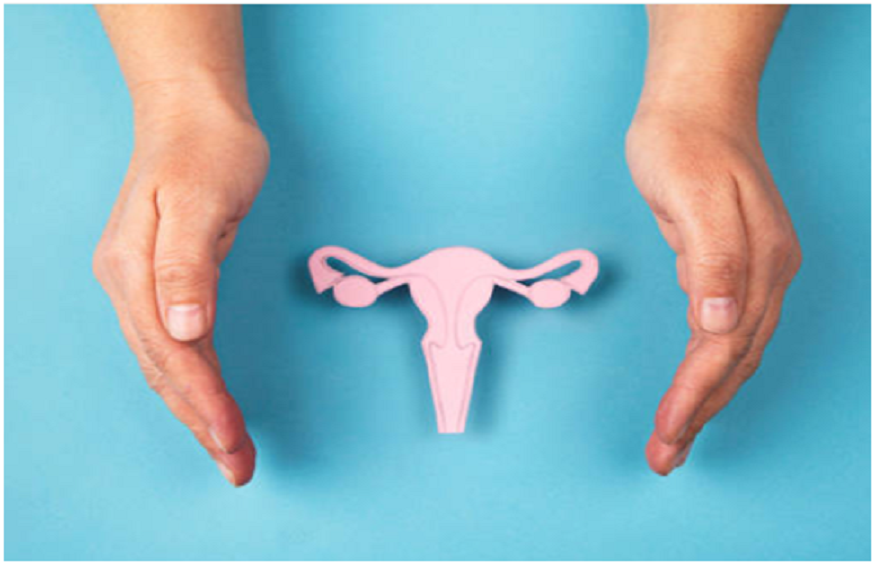How to Track Ovulation with Irregular Periods

Tracking ovulation can be a challenge for anyone, but if you experience irregular periods, it becomes even more complex. Understanding your body’s cycle is essential, especially if you are trying to conceive or are concerned about your reproductive health. For individuals with irregular periods, predicting ovulation requires a more personalized and careful approach. However, with some tools and techniques, tracking ovulation is still possible. Today, we’ll be taking a look at the best ways to track ovulation for irregular periods and how to recognize signs of pregnancy when you have irregular periods.
Encountering the issue of irregular periods? Visit a top hospital in Ranchi for a comprehensive check-up and remedial regime.
Understanding Irregular Periods
Before diving into ovulation tracking, it’s important to understand what irregular periods are. Typically, a menstrual cycle lasts between 21 to 35 days. If your cycle varies significantly from this or fluctuates from month to month, you may be experiencing irregular periods. This can make tracking your ovulation cycle challenging since ovulation does not occur on a predictable day as it might with regular periods.
There are many reasons for irregular periods, and they can range from hormonal imbalances to lifestyle factors. Stress, excessive weight gain or loss, polycystic ovary syndrome (PCOS), and thyroid problems are just some of the causes. It’s essential to address these underlying reasons for irregular periods, as they may also impact your ability to conceive.
Why Tracking Ovulation is Important
Tracking ovulation is crucial for anyone trying to conceive. Ovulation is the process where a mature egg is released from the ovary, ready to be fertilized by sperm. Knowing when ovulation occurs increases your chances of becoming pregnant because conception is most likely to happen during the ovulation window.
For those with irregular periods, pinpointing the ovulation cycle is harder because ovulation doesn’t occur at a fixed time each month. However, tracking ovulation for irregular periods can still provide valuable insights into your fertility patterns and health.
Techniques for Tracking Ovulation with Irregular Periods
Ovulation Predictor Kits (OPKs)
Ovulation predictor kits are one of the most reliable tools for tracking ovulation for irregular periods. These kits detect a surge in luteinizing hormone (LH), which typically happens 24 to 36 hours before ovulation. With irregular periods, it’s important to use the kit daily or as frequently as possible. Since your cycle length varies, testing consistently over a prolonged period can help identify patterns that might otherwise be missed.
Basal Body Temperature (BBT) Charting
Another effective method to track your ovulation cycle for irregular periods is basal body temperature (BBT) charting. BBT is your body’s temperature when fully at rest, and it increases slightly after ovulation. By recording your temperature daily with a special thermometer, you can track patterns that suggest when ovulation has occurred. This method requires patience, as irregular periods can make it difficult to see clear patterns. However, over time, you may notice a temperature shift that helps confirm ovulation.
Cervical Mucus Observation
Your cervical mucus changes throughout your cycle, becoming clear, stretchy, and resembling egg whites around the time of ovulation. Monitoring your cervical mucus can help track your ovulation cycle for irregular periods, especially when combined with other tracking methods. Irregular periods can make it harder to rely on mucus alone, but changes in consistency, quantity, and texture are good indicators of fertility.
Ultrasound Monitoring and Blood Tests
If you’re working with a healthcare provider, ultrasound monitoring and blood tests can offer a more scientific approach to tracking ovulation. This is particularly useful when ovulation for irregular periods is hard to predict using at-home methods. An ultrasound can track follicle development, and blood tests can measure hormone levels, such as LH and progesterone, to confirm ovulation.
Tracking Symptoms and Calendar Methods
Using apps or calendars to log symptoms such as bloating, breast tenderness, or mild cramping (known as mittelschmerz, which can occur during ovulation) may also help track your ovulation cycle for irregular periods. While this method isn’t foolproof, it can offer insight into the times when you are most fertile. Over several months, you might notice recurring patterns that correlate with ovulation.
Recognizing Signs of Pregnancy When You Have Irregular Periods
For those with irregular periods, identifying signs of pregnancy can be tricky. Since a missed period is the most obvious early sign of pregnancy, irregular cycles can obscure this. However, other early signs of pregnancy when you have irregular periods include fatigue, breast tenderness, nausea, and frequent urination. It’s important to stay attuned to these symptoms, as they can signal pregnancy even when your period doesn’t follow a predictable schedule.
Additionally, using a home pregnancy test may help confirm pregnancy if you notice other early signs of pregnancy when you have irregular periods. It’s also recommended to consult a healthcare provider if you suspect you may be pregnant, especially if you have irregular periods and are unsure about your ovulation patterns.
The Impact of Hormonal Imbalances and Lifestyle Factors
One of the main reasons for irregular periods is hormonal imbalance, particularly with hormones like estrogen and progesterone that regulate the menstrual cycle. Conditions like PCOS or hypothyroidism can interfere with regular ovulation, making tracking difficult. Addressing the reasons for irregular periods often involves lifestyle changes such as weight management, stress reduction, and dietary adjustments.
Another important aspect is managing external factors, like stress and sleep patterns, which can affect hormonal regulation. Maintaining a healthy lifestyle can help stabilize your cycle and make tracking ovulation easier, even when your periods are irregular.
When to Seek Medical Help
While home methods for tracking ovulation can be helpful, consulting a healthcare provider is advisable if you experience consistently irregular periods or have been trying to conceive for over a year without success. Medical professionals can help identify the underlying reasons for irregular periods and recommend treatments such as fertility medications or hormonal therapies to regulate your cycle and support ovulation.
Conclusion
Tracking ovulation with irregular periods can be challenging, but with persistence and the right tools, it’s possible. By using methods like OPKs, BBT charting, cervical mucus observation, and working closely with a healthcare provider, you can improve your chances of identifying your most fertile days. Recognizing signs of pregnancy when you have irregular periods and addressing any underlying reasons for irregular periods are also crucial steps. Whether you’re trying to conceive or simply want to understand your cycle better, knowing how to track ovulation is an empowering step toward reproductive health. Visit a super-speciality hospital in Gurgaon to know more.

 Best Nicotine Gum Options: Key Benefits and How to Choose the Right One
Best Nicotine Gum Options: Key Benefits and How to Choose the Right One  Complete Guide to Diagnosis and Treatment of Hypertension
Complete Guide to Diagnosis and Treatment of Hypertension  5 Toronto Dietitian Approved Habits for a Healthy New Year
5 Toronto Dietitian Approved Habits for a Healthy New Year  What Causes Gas And Bloating In Children?
What Causes Gas And Bloating In Children?  The Quiet Factors That Define a Reliable Angiography Device
The Quiet Factors That Define a Reliable Angiography Device  Renting medical equipment can make moving around and being comfortable easier
Renting medical equipment can make moving around and being comfortable easier  Deep Cleaning Woodland Hills: Understanding Gum Health and Advanced Dental Cleaning
Deep Cleaning Woodland Hills: Understanding Gum Health and Advanced Dental Cleaning  Dental Implants and Osteoporosis: What Patients Should Know About Safety and Healing
Dental Implants and Osteoporosis: What Patients Should Know About Safety and Healing  Improving Your Smile in Woodland Hills: A Balanced Approach to Confidence and Oral Care
Improving Your Smile in Woodland Hills: A Balanced Approach to Confidence and Oral Care